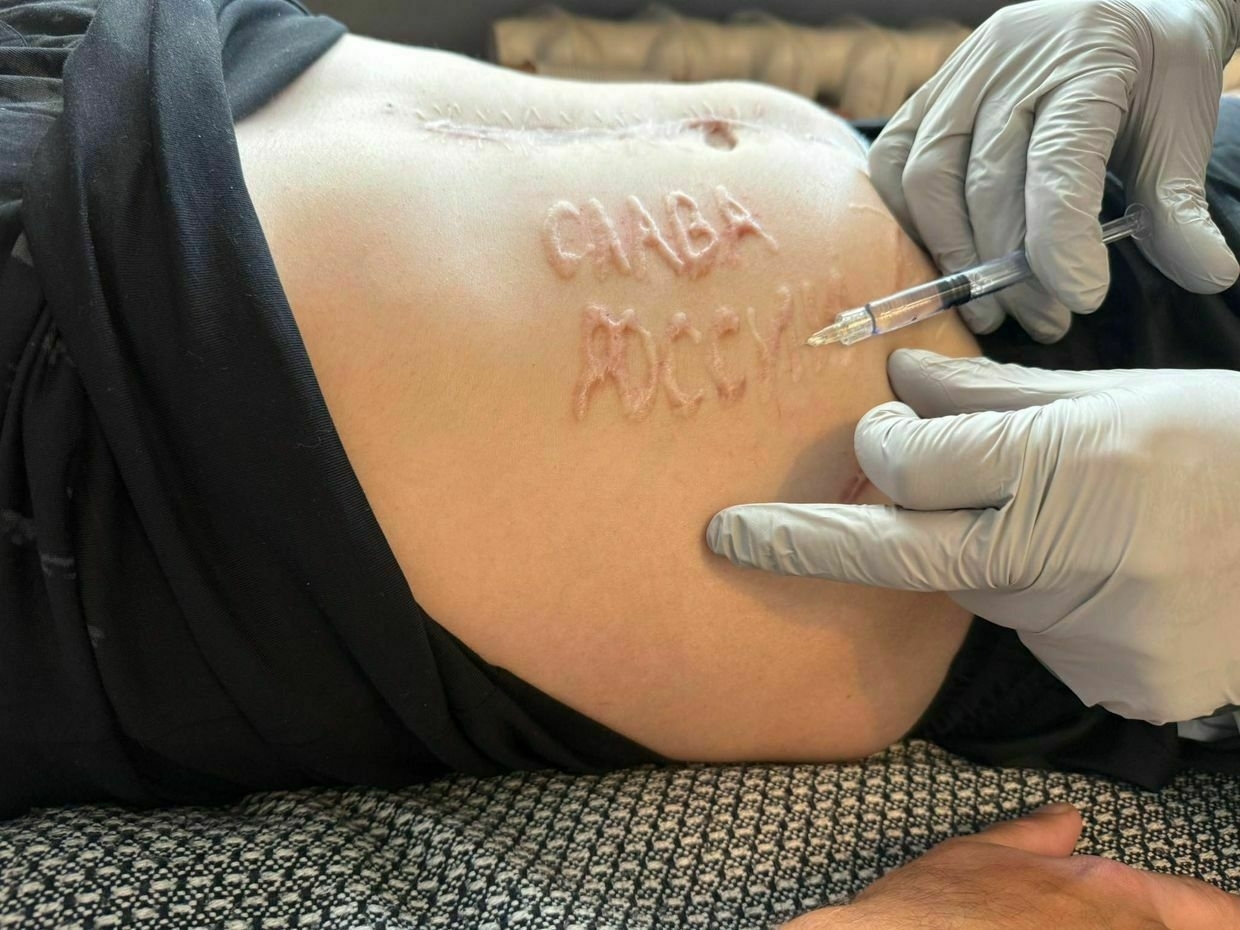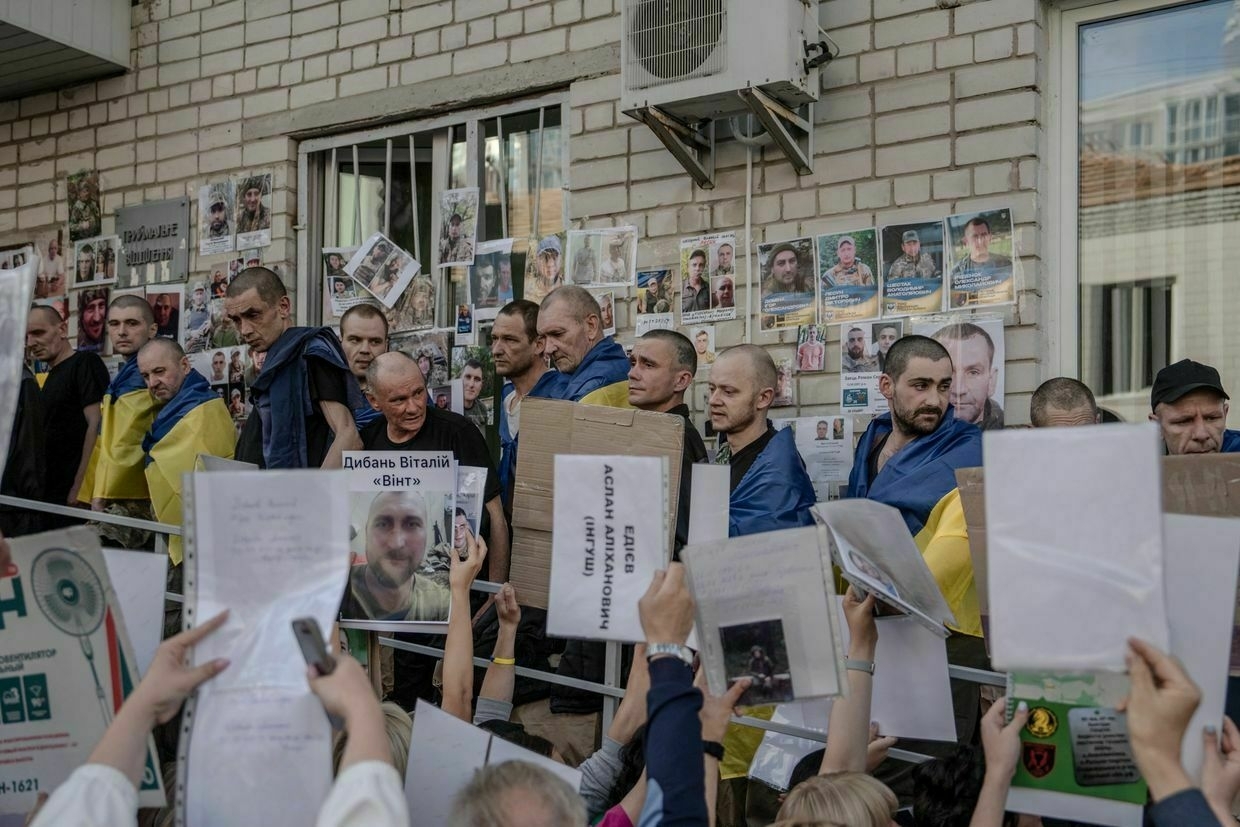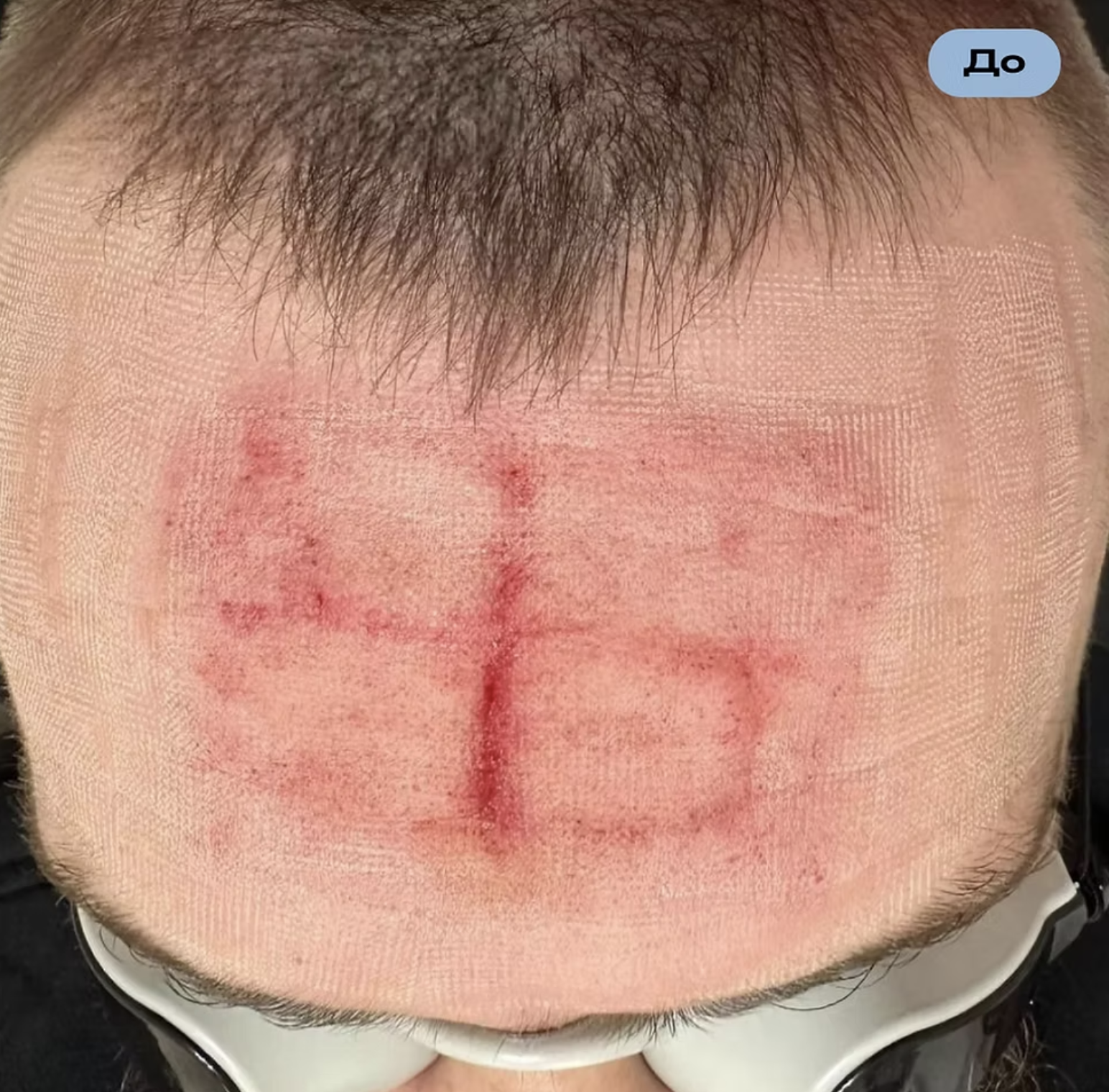
After more than three years of Russia’s full-scale invasion, each new revelation of cruel treatment of Ukrainians in Russian captivity hardly surprises anyone.
But when a photo recently emerged online, showing a “Glory to Russia” scar on the body of a Ukrainian prisoner of war (POW), it sent shockwaves across the world.
The words, written in Russian, were branded into the right side of the body alongside the letter “Z,” a symbol of the full-scale invasion that many Ukrainians and critics of the war liken to the Nazi swastika.
The cynical act came to light after a Ukrainian doctor shared a photo of the released soldier’s mutilated abdomen earlier in June, taken not long after his release from Russian captivity. The photo was later verified by Ukraine’s military intelligence (HUR).
Although the identity of the released soldier remains undisclosed, it is known that his name is Andrii, and he is currently receiving treatment through “Neopalymі” (“Unburned” in Ukrainian), a national program that provides free care for war-related injuries.
Maksym Turkevych, CEO of Neopalymi, told the Kyiv Independent that they are confident the inscription on Andrii’s body was made by a surgeon, calling it “beyond cynical."
“It was done under general anesthesia, which strongly suggests it wasn’t meant as torture. It wasn’t about inflicting pain,” Turkevych said. “It was done with the intent to leave a mark.”
According to HUR spokesperson Andriy Yusov, a doctor at a Ukrainian rehabilitation center where Andrii was receiving treatment, couldn’t stay silent, took the photo and shared it online as evidence of what Ukrainian defenders endure in Russian captivity.
“The photo speaks for itself,” Yusov said on national television on June 10. “It’s crucial that it’s seen not just by Ukrainians — they already know what the Russians are capable of — but by the whole world."
According to the United Nations, more than 95% of freed Ukrainian POWs have said they were tortured during their captivity. Survivors have recounted harrowing treatment, including being brutally beaten, electrocuted, and forced to endure painful stress positions.
95% of freed Ukrainian POWs have said they were tortured during their captivity. Survivors have recounted harrowing treatment, including being brutally beaten, electrocuted, and forced to endure painful stress positions.
Many have faced mock executions, threats of rape or death, and were denied basic medical care. Some were left without food, locked in isolation for weeks, or permanently marked with burns or scars.
While Ukraine has managed to bring back 5,757 people in more than 65 exchanges, according to the Coordination Headquarters for the Treatment of POWs, thousands of POWs and civilians remain in Russian captivity.
Yusov did not reveal details about the POW scarred in captivity, but noted that he was freed in one of the earlier exchanges, not the most recent ones.
A surge in prisoner releases followed talks between Ukrainian and Russian delegations in Istanbul in early May. While the meeting didn't lead to a political breakthrough, it marked the first direct negotiations between the two sides since 2022 and resulted in a series of POW exchanges and the return of fallen soldiers' remains.

‘Inhumane system'
For Turkevych and his team, seeing the scars left by Russian captivity on Ukrainian POWs has become a routine part of their work. Launched in August 2022, the project has treated nearly 400 patients with war-related injuries, burns, and scars, including former POWs.
Although Turkevych and his team have treated several released defenders bearing swastika-shaped scars, some even on their foreheads, he describes the scar on Andrii's body as exceptionally cynical.
Turkevych said that the sharp precision of Andrii's scar suggests that he was unconscious – otherwise, the wound would have looked very different. According to him, the mark was made using an electrocautery device, which uses heat to cut or coagulate tissue, rather than something like a soldering iron or a knife.

Although Turkevych did not specify how long Andrii had been in captivity or where he was held, he said the scar was likely inflicted around 15 months ago. The mark with the inscription overlapped with other surgical scars, according to Turkevych, suggesting it was made during one of the procedures Andrii underwent.
"The surgeries, including the one that left the mark, were likely performed around the same time," he said.
According to Turkevych, Andrii had a shrapnel injury in the groin and damage to his bladder, which required surgery. A catheter is still visible in the photo shared by a Ukrainian doctor, along with a massive scar on his stomach.
Turkevych says that Andrii is currently unavailable for comment as he is undergoing treatment.
He believes Andrii has likely undergone three to five procedures in captivity, which would explain the layered and uneven appearance of the scar tissue: "At some point, someone decided to get 'creative' and left a signature behind," he said.
While it's unclear how long it will take to remove the "Glory to Russia" scar from Andrii's body, Turkevych says it will definitely be removed.
"As of now, we hope to see noticeable results on the inscription in about five to six months."
For Turkevych, it also exposes a deeper truth about Russia: "Their entire structure is built on cruelty, aggression, cynicism, and a willingness to commit deeply immoral acts just to show loyalty and secure a place within it."
What shocked him most wasn't just the cruelty of the system itself, but that even now, over three years into the full-scale war, people still want to be a part of it.
"There are still too many in Russia who knowingly join this brutal, inhumane system," Turkevych said. "They're ready to do whatever it takes to belong, regardless of how much it violates basic human values."
Note from the author:
Hi! Daria Shulzhenko here. I wrote this piece for you. Since the first day of Russia's all-out war, I have been working almost non-stop to tell the stories of those affected by Russia’s brutal aggression. By telling all those painful stories, we are helping to keep the world informed about the reality of Russia’s war against Ukraine. By becoming the Kyiv Independent's member, you can help us continue telling the world the truth about this war.
